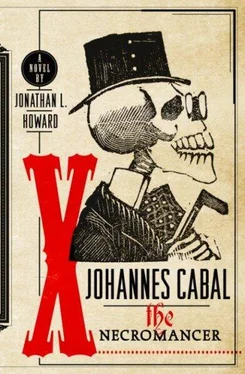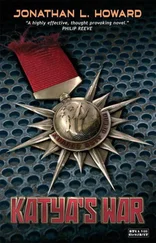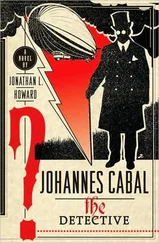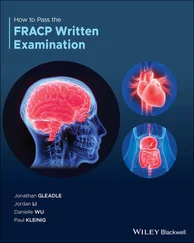He was looking at the bright light bulbs running down the side of the Helter-Skelter, the light flowing in primary torrents. He could barely hear himself think over the music and the chatter and the laughter and the screaming. He certainly didn’t hear himself say, “I like you, too, Trixie.”
With time, maybe I could even love you.
Loyalty, that was one thing, but love …
“Ted? Are you all right?” He whirled drunkenly. Some woman with too much make-up was looking at him. “You look terrible! You look ill, Ted!” He didn’t look terrible. She looked terrible. Her head was too small. She wasn’t wearing a red dress. “You’ve got to get home, you’re coming down with something!”
He said something that was supposed to be “Get away from me,” but the syllables just fell out of his mouth like rotting potatoes. Frustrated and too dizzy to find his anger, he turned his back on the woman and stormed away. The crowd, full of faces with wide eyes and wide smiles, looked through him, but parted like loud ghosts.
The woman was right about one thing, thought Ted: he had to get home. He had to get home with Trixie. He clutched the doll to his chest and half walked, half ran to find the exit.
Beyond the archway, the air would be cool. He would be able to think again. He would be happy. He would be loved. Trixie felt good against his chest, as good as a real woman, better than a real woman. That woman (Did he know her? Rachel? That sounded familiar) was a real woman, but there was so much wrong with her. She would never be right. She had life and wants, and now it turned out she even had opinions. He remembered how Trixie had felt when he had first squeezed her, when he had been expecting some wire to stab him. Now he imagined squeezing Rachel, squeezing any “real woman” like that, imagined all the sharp wires of their lives and history, of their desires and thoughts, unwanted, unnecessary, stabbing into his hands as he squeezed, the blood coming from his wounds, staining their dresses red. All that pain, and all that frustration; he would never be happy.
He could feel Trixie against him, held tight. Love and happiness. He passed under the archway.
And it all went away.
He stopped dead in his tracks, a grown man clutching a doll. He took her in both hands and looked at her, shock and a terrible longing growing in him for something he hadn’t even known he had wanted until a few minutes ago. He squeezed her, he squeezed it, but it was just a doll. He shook it, but that only made her winking eye clatter spastically open and shut tikatikatika.
He turned and looked up at the archway. Walking through it had been like flicking a switch. Inside/outside: Trixie/doll. He made to re-enter, but the turnstile wouldn’t move. He shoved ineffectually against the steel arms, until he noticed the man in the booth smiling darkly and tapping a sign that read No Re-Admittance on Cancelled Tickets.
Ted thrust his hand into his trouser pocket and threw all his change onto the small metal counter. He didn’t know how much he’d given, nor did he care. Neither did the man in the booth. Without even checking how much was there, he worked the machine, and a ticket, as red as ripe pomegranate seeds, clacked from the slot in the counter. Ted took it like a drowning man clutching at a straw and threw himself against the turnstile again. The man in the shadowed booth let him beat against it for a full five seconds until, still smiling darkly, he released it, and Ted staggered back into the carnival ground.
Instantly, Trixie was Trixie. He stood clutching her, ecstatic yet terrified by the knowledge that, when the carnival moved on, so would his happiness. Perhaps he could hide here, somewhere behind the scenes, make the few days last, hide in a dark corner, holding Trixie. He ran blindly in an agony of fear at the uncertain future, for longer than he knew.
When he paused, he found himself away from the carnival proper, down near the railway, near the train. There was a man standing there. Ted recognised the man who had blundered into him, the man who had given him the free games at the shooting gallery. Like a dream, the man seemed to be expecting him; and, like a dream, this seemed perfectly rational and proper to Ted.
Ted walked forward, taking his hat off and crushing it in his free hand. The other held Trixie, tender and close, in its crook. “Mister,” he stumbled out, “sir …”
“The Cabal Brothers Carnival thanks you for your interest,” said the man, speaking with a faint German accent, “but we have no vacancies at this time.”
“But…” Ted realised that the man had known even before he had that he had wanted a job there. It was perfect. If he insisted, perhaps? If he begged …
“No … vacancies at this time.” The blond man pushed his straw boater up at the front. It was an odd choice of headwear, considering he was otherwise dressed much like an undertaker. He nodded at Trixie. “You like the doll?”
Ted hugged her protectively. The man shook his head with restrained incredulity. “Agalmatophilia. Wonders will never cease. I owe my brother an apology.”
The man reached into his inside pocket and produced a folded piece of paper. As he flicked the paper open with an easy snap of his wrist, he took a pen from the same pocket. “I believe we can come to an arrangement.”
Ted didn’t listen to what the man had to say. He just felt Trixie squirming against him, heard her voice in his mind, and he reached for the pen.
* * *
Later, Horst found Cabal in his office aboard the train, examining the signed form with every expression of satisfaction. “I never expected it to be this easy,” he said, holding up the paper so Horst could see Ted’s untidy signature.
Horst sat down on the other side of the desk and leaned back into the leather chair. “Neither did I,” he replied a little grimly. “Perhaps Satan didn’t, either. We should be careful.”
“Given my profession, being careful is what separates the successes from the failures.”
“Ha! What makes you think you’re such a success, Johannes?”
“Because I’m not tied to a post, up to my knees in bonfire.” He frowned; Horst was spoiling his little victory. Cabal decided to make some effort to jolly him along. “You were right, though. I couldn’t see what possible use a toy filled with the diabolical spirit could be in bringing us an adult male, but it did. He virtually begged to sign this. There are, however, a few things that I don’t understand about this evening’s business.”
Horst looked wearily over the desk at him. “Do you need to understand everything?”
“Of course,” said Cabal, dismissing such a silly comment. “Firstly, what precisely happened there? Did the doll come to life, or did it somehow create a paraphilia in” — he looked at the signature — “Edward … somebody. Terrible handwriting.”
“A para- what ? Paraphilia? Where do you get these words? What’s a paraphilia?”
“A fetish. What exactly did Satan’s blood do to the doll? Possess it or curse it? I’m interested to know.”
“I have no idea. A little of both, maybe. Perhaps. Does it matter?”
“It may, at some point. Something else I would like a definite answer to, though.” He waited until Horst looked at him before continuing. “I would like you to answer the question I posed you earlier.”
Horst sagged back into the chair, and looked at the ceiling. “I don’t remember it,” he said, though he obviously did.
“I asked,” said Cabal with cryogenic patience, “why you had decided to help me, after making it quite plain that you would not directly help me get these” — he waved the contract — “signed. Then, at very nearly the first opportunity, you do. I would very much like a clear and honest answer, without you wafting out of here like a manifesto promise the day after an election. Well?”
Читать дальше










